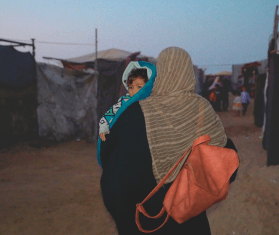NEW YORK/GENEVA, September 23, 2024 — Ahead of tomorrow’s US Senate Committee on Health, Education, Labor and Pensions hearing on “why Novo Nordisk is charging outrageously high prices for diabetes medicines,” Doctors Without Borders/Médecins Sans Frontières (MSF) is calling on pharmaceutical corporations Eli Lilly, Novo Nordisk, and Sanofi to take urgent action to increase access to diabetes medicines everywhere.
These companies must drop their prices and stop blocking generic manufacturers from entering the market, said MSF.
Currently, Eli Lilly, Novo Nordisk, and Sanofi control and monopolize the diabetes market. Eli Lilly and Novo Nordisk produce insulin and GLP-1 medicines like Ozempic, and Sanofi produces insulin. A limited number of competitors means these companies can set prices as high as they want, effectively blocking affordable access to treatment for people living with diabetes around the world, including in humanitarian and low-resource settings like those in which MSF works. Only half of all the people in the world who need insulin have access to it.
“Every day, we witness a lack of access to insulin pens and newer diabetes medicines like GLP-1s in countries where we work because prices are unaffordable and there is no sustainable supply,” said Christa Cepuch, pharmacist coordinator at MSF’s Access Campaign. “The corporations making diabetes medicines have profited enough. Our research has shown that the prices of insulin pens and new diabetes medicines are astronomically marked up at the expense of people living with diabetes being able to access lifesaving treatment.”
A study published in March 2024 by MSF in the Journal of the American Medical Association (JAMA) Network, revealed the stark contrast between the estimated cost of production with a profit (the “cost-based price”) and what pharmaceutical companies were actually charging consumers. Long-acting analogue insulin pens, for example, are sold for $2.98 in South Africa, $7.88 in India, and $28.40 in the US, compared to the possible cost-based price of $1.30 per pen. Insulin pens are more practical and safer for people to use than vials and syringes, especially in fragile and humanitarian settings.
GLP-1 medicines are sold at a nearly 40,000 percent markup in the US, while remaining largely unavailable in low- and middle-income countries. Eli Lilly and Novo Nordisk are the only producers of this newer GLP-1 receptor agonist class of medicine used to treat people with diabetes. MSF’s study found that a one-month supply of GLP-1 medicines could be sold at a profit for just $0.89 per month, yet costs $115 per month in South Africa, $230 in Latvia, and $353 in the US. GLP-1s help manage blood sugar levels in people with type 2 diabetes, reducing the likelihood of potential diabetes-related health complications and the need for additional care—something that can be difficult to access for people in low- and middle-income countries.
The high prices charged by these corporations are in part due to patent monopolies on the medicines and the devices that deliver them. Allowing generic manufacturers to enter the market could help drive prices down. For example, competition among generic pharmaceutical manufacturers is what brought the cost of HIV medicines down by 99 percent over the past two decades. Having additional manufacturers in the market would also help meet the global supply needs for these new medicines in pen devices, which Eli Lilly and Novo Nordisk are unable to do alone.
“Tomorrow’s Senate hearing will ask pharmaceutical corporations a basic question: what makes it acceptable to charge extraordinarily high prices for lifesaving medicines when they cost just a few dollars to produce?” said Mihir Mankad, director of global health advocacy and policy at MSF USA. “We urge Novo Nordisk, as well as Eli Lilly and Sanofi, to put people before profits by dropping the price of the diabetes medicines they produce, and allowing more manufacturers around the world to make them so there is enough supply for all people who need them.”
Diabetes affects 537 million people globally. Cases are rising in low- and middle-income countries, with a projected increase of 134 percent in Africa by 2045. MSF has significantly increased the number of diabetes consultations in our medical programs. In 2022, MSF performed 205,122 diabetes-related consultations globally.




